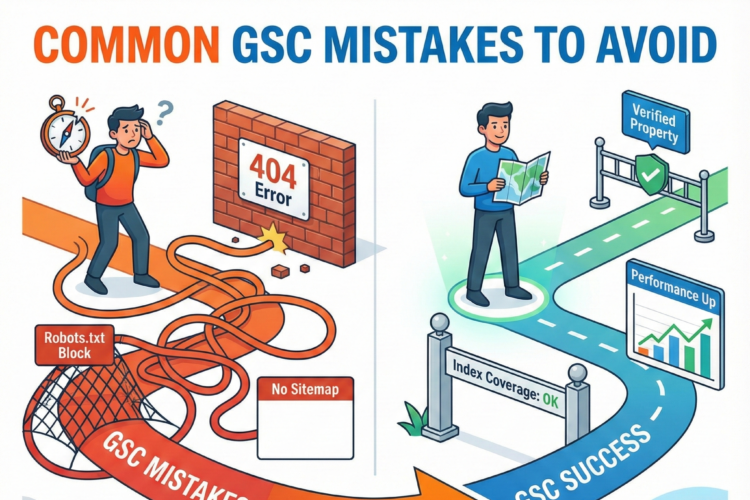
SEO for Videos: The Complete Guide to Ranking Video Content in Search Engines
SEO for Videos: The Complete Guide to Ranking Video Content in Search Engines
Video is one of the most powerful content formats online. But even the best video won’t drive traffic if no one sees it. That’s where Video SEO comes in.
In this detailed guide, we’ll cover how to optimize your videos for both Google and YouTube, the two largest search engines in the world. Whether you’re a YouTuber, digital marketer, educator, or business owner, you’ll learn exactly how to make your videos more visible and discoverable.
📌 What is Video SEO?
Video SEO (Search Engine Optimization) is the process of optimizing your video content to rank higher in search results, on both traditional search engines like Google and video platforms like YouTube.
This includes:
-
Keyword research
-
Optimizing titles, descriptions, and tags
-
Using transcripts and captions
-
Creating video sitemaps
-
Improving user engagement signals
🎯 Why Video SEO Matters
-
YouTube is the #2 search engine globally
-
Google displays videos in SERP features like video carousels and rich snippets
-
Properly optimized videos can drive long-term organic traffic
-
Video content helps improve dwell time and engagement
🔍 Part 1: Video SEO for YouTube (The Platform)
1. ✅ Keyword Research for Videos
YouTube is keyword-driven. You need to optimize for what people are searching for.
How to find video keywords:
-
Use YouTube’s autocomplete (type a word and see suggestions)
-
Use tools like:
-
TubeBuddy
-
VidIQ
-
Ahrefs YouTube Explorer
-
-
Look at competitor videos and extract top-ranking keywords
-
Find “how to,” “tutorial,” “review,” and “unboxing” variations
📌 Tip: Aim for long-tail keywords like “how to tie a tie for beginners.”
2. 🎯 Optimize Video Titles
Best Practices:
-
Use exact match keyword near the beginning
-
Make it clickable, not just stuffed with keywords
-
Add value/urgency (e.g. “2024 Tips”, “Step-by-Step”, “Fast”)
Bad:
Tie a Tie
Good:
How to Tie a Tie (Step-by-Step Guide for Beginners)
3. ✍️ Write Descriptions That Rank
YouTube uses descriptions to understand your content. Use 250–500 words with relevant keywords.
Structure:
-
1st 2–3 lines: summary with keyword
-
Middle: explain content in detail (include LSI keywords)
-
Bottom: links, hashtags, CTAs
📌 Pro Tip: Add timestamps (chapters) for longer videos.
4. 🏷️ Use Smart Tags
Tags help YouTube categorize your video—though less important than before, they still help.
Use:
-
Primary keyword
-
Related terms
-
Misspellings or alternate phrasings
Use tools like VidIQ to find high-performing tag combinations.
5. 📂 Create Click-Worthy Thumbnails
Thumbnails are critical for CTR, which impacts rankings.
Tips:
-
Use bold, readable text
-
Contrast colors with YouTube’s white UI
-
Show facial expressions or key objects
-
Avoid clutter
6. 🕐 Improve Watch Time and Retention
YouTube rewards videos that people watch longer.
Improve retention by:
-
Hooking viewers in the first 15 seconds
-
Using pattern interrupts (visuals, cuts, captions)
-
Delivering value consistently
📌 Add end screens and cards to increase session time.
7. 💬 Engagement Optimization
Encourage:
-
Comments (ask a question at the end)
-
Likes and shares
-
Subscribes (verbal + visual CTAs)
Engagement helps build authority signals around your content.
🔗 Part 2: Video SEO for Google (Universal Search)
Google doesn’t just rank web pages—it also ranks videos in the search results.
1. 🎥 Host Videos Smartly (Self-Hosted vs YouTube)
If you’re embedding on your website, choose wisely:
-
YouTube: Free hosting, massive reach, but traffic goes to YouTube
-
Wistia/Vimeo: Keeps traffic on your site, better for lead gen and analytics
-
Self-hosted (with video sitemap): SEO-friendly but costly in terms of bandwidth
📌 Best: Upload to YouTube and embed selectively on your site using schema markup.
2. 🧠 Add Schema Markup (VideoObject)
Use structured data to help Google understand your video content.
{
"@context": "https://schema.org",
"@type": "VideoObject",
"name": "How to Bake Chocolate Cake",
"description": "A step-by-step chocolate cake recipe.",
"thumbnailUrl": "https://www.example.com/thumbnail.jpg",
"uploadDate": "2025-05-01",
"contentUrl": "https://www.example.com/videos/cake.mp4",
"embedUrl": "https://www.example.com/embed/cake",
"duration": "PT6M5S"
}
Use tools like Google’s Structured Data Testing Tool to validate.
3. 🗺️ Submit a Video Sitemap
Create a video-specific sitemap and submit it via Google Search Console.
Helps Google discover your video content faster.
4. ✏️ Use Transcripts and Captions
Benefits:
-
Improves accessibility
-
Adds keyword-rich content
-
Allows indexing by search engines
Add closed captions (SRT files) or transcribe in the description or on the page.
5. 📎 Embed Smartly
-
Use responsive embeds (mobile-friendly)
-
Place video above the fold
-
Add descriptive text and metadata around the embed
-
Avoid auto-play
📊 Measuring Video SEO Success
Use:
-
YouTube Analytics (watch time, retention, traffic sources)
-
Google Search Console (video impressions, CTR, index status)
-
GA4/Tag Manager (if embedding on your site)
Key Metrics:
-
CTR from search
-
Watch time / average view duration
-
Subscriber growth
-
Engagement (comments, likes)
-
Video clicks from Google SERPs
🧠 Bonus Tips
-
Repurpose videos into blog posts, shorts, Instagram Reels, or podcasts
-
Optimize playlists with keywords
-
Use YouTube Community tab to drive traffic
-
Collaborate with other creators for authority backlinks
-
A/B test thumbnails and titles with tools like TubeBuddy
✅ Final Checklist for Video SEO
| Element | Optimized? ✅ |
|---|---|
| Keyword-rich title | |
| Detailed description | |
| Custom thumbnail | |
| Tags added | |
| Captions/transcripts | |
| Schema markup (if embedded) | |
| Video sitemap | |
| Watch time strategies | |
| Engagement CTA |
Conclusion
Video SEO bridges creativity and discoverability. With the right mix of on-platform optimization (YouTube) and search visibility tactics (Google), your videos can generate traffic for months—or even years.
Author



